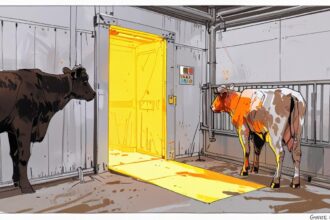A recent analysis reveals the stark disparity between the desired annual income for a comfortable retirement and the average UK pension pot, alongside the challenges and responses in the hospitality sector due to wage policy adjustments.
In recent reports, the disparity between the need for a “comfortable retirement” and the reality of current pension pots in the UK has been illuminated, alongside the effects of wage policy adjustments on the economy and businesses, particularly within the hospitality sector.
Experts suggest that a “comfortable retirement” in the UK may require an annual income of around £43,000. However, achieving this is a considerable challenge for many, as only 8% of individuals are on track to reach this level of retirement income, according to the Pensions and Lifetime Savings Association. The average pension pot in the UK is reported to be £32,700, significantly less than what is considered necessary for a “comfortable retirement”. These figures highlight the essential role that private pensions play in bridging the gap, along with the state pension received by 98% of pensioners. Tailoring one’s pension savings strategy to individual circumstances is deemed imperative, given the varied factors affecting retirement targets.
Simultaneously, the UK has seen a notable response from businesses to the demands for wage increases, particularly in the hospitality sector. Businesses have acknowledged the rise in staff costs relative to sales, with the upcoming increase in the hourly rate to £11.44 reflecting the government’s efforts to eliminate low pay. This policy, supported by both Labour and Conservative governments, has positioned the UK among the countries with the highest minimum wage. Despite the positive impact on the living standards of low-paid workers and minimal adverse effects on employment, continuous wage increases raise sustainability concerns among smaller businesses.
Furthermore, discussions extend beyond wage increases to consider the necessity of addressing job security, flexibility, and the broader challenges within the labor market. The evolving business response to wage policies has underscored the importance of a holistic approach to improving workers’ standards of living and addressing insecure work. These developments underscore the on-going economic challenges and the efforts to improve working conditions across the UK.













